Key Takeaways
- Starting a cleaning company requires minimal upfront investment, typically $650-$10,000, making it accessible for new entrepreneurs
- Choose between residential cleaning services (homes and apartments) or commercial cleaning (offices, retail stores, healthcare facilities) based on your local market demand
- Essential requirements include business registration, general liability insurance, basic cleaning supplies, and a reliable vehicle for transportation
- Pricing should cover all expenses plus profit margin, with residential cleaning averaging $25-80 per hour and commercial contracts offering steady monthly revenue
- Digital marketing through Google My Business, social media, and local SEO is crucial for attracting customers in today’s competitive cleaning industry
The cleaning services industry has experienced remarkable growth, reaching $67.5 billion in 2023 with a 6.2% annual growth rate. This expansion creates tremendous opportunities for aspiring entrepreneurs looking to start a cleaning business. Unlike many other industries, the cleaning business offers one of the most accessible paths to business ownership, with startup costs as low as $650 and steady demand across all market segments.
Whether you’re considering house cleaning services, commercial cleaning, or specialized cleaning services, this comprehensive guide will walk you through every step needed to launch and grow a successful cleaning business. From conducting market research to scaling your operations, you’ll learn the proven strategies that cleaning business owners use to build profitable enterprises.
The cleaning industry’s resilience stems from consistent demand – homes need regular maintenance, office buildings require daily upkeep, and specialized facilities like medical centers have stringent cleanliness requirements. This guide will help you navigate the opportunities and challenges of starting your own cleaning business in today’s competitive marketplace.
Research Your Local Cleaning Market
Before launching your cleaning company, thorough market research forms the foundation of your business strategy. Understanding your local market dynamics, competitor landscape, and customer preferences will inform every decision from pricing to service offerings.
Start by analyzing competitors within a 10-mile radius of your intended service area. Visit their websites, check their Google My Business listings, and note their pricing structures, services offered, and customer reviews. Pay particular attention to common complaints in reviews – these represent opportunities for your cleaning business to differentiate itself through superior service delivery.
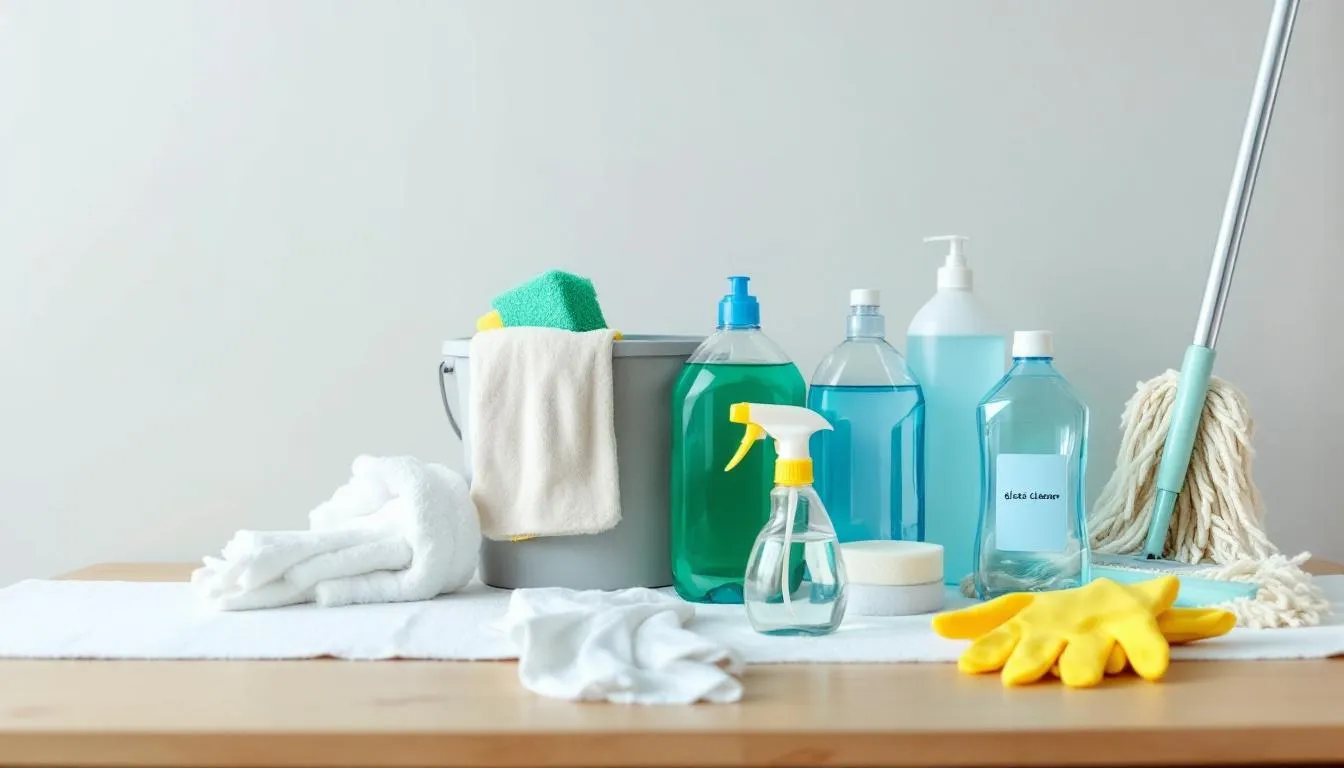
Identify market gaps that represent opportunities for your new business. These might include eco-friendly cleaning services, post-construction cleanup, specialized healthcare facility cleaning, or underserved geographic areas. Many successful cleaning businesses start by filling specific niches that larger competitors overlook.
Determine whether your area has higher demand for residential cleaning or commercial cleaning. Suburban neighborhoods with busy families often need house cleaning services, while downtown business districts require office cleaning and commercial cleaning services. Survey potential customers through local Facebook groups and neighborhood apps like Nextdoor to understand service preferences and willingness to pay.
Research seasonal demand patterns in your market. Residential cleaning typically peaks during spring cleaning season and holidays, while commercial properties maintain more consistent year-round demand. Understanding these patterns helps with financial planning and staffing decisions.
Contact your city’s business development department to gather demographic data and economic trends that might affect demand for cleaning services. This information proves valuable when creating your business plan and projecting revenue growth.
Choose Your Cleaning Services and Business Model
The success of your cleaning company depends heavily on selecting the right mix of services and business model for your market and capabilities. The cleaning industry offers numerous specialization opportunities, each with distinct requirements, profit margins, and growth potential.
Decide between focusing on residential cleaning, which includes homes, apartments, and vacation rentals, or commercial cleaning for offices, retail stores, restaurants, medical facilities, and schools. Each path requires different equipment, scheduling approaches, and customer relationship management strategies.
Evaluate specialized services that command premium pricing, such as move-in/move-out cleaning, post construction cleaning, carpet cleaning, or upholstery cleaning. These services often provide higher profit margins and can differentiate your cleaning business from general competitors.
Determine your service frequency model – whether you’ll offer one-time services, weekly/monthly recurring contracts, or both options. Recurring contracts provide predictable revenue streams, while one-time services offer flexibility and higher per-job rates.
Residential vs Commercial Cleaning Services
Residential cleaning offers several advantages for new business owners. You’ll enjoy flexible scheduling, develop personal relationships with clients, and typically earn higher hourly rates ranging from $25-80 per hour. The barrier to entry is lower, requiring basic cleaning supplies and equipment that most homeowners recognize and appreciate.
House cleaning business operations focus on individual relationships and customized service. Customers often develop long-term loyalty when satisfied with your work, leading to steady recurring revenue and valuable referrals to neighbors and friends.
Commercial cleaning provides different benefits, including steady contracts, bulk scheduling efficiency, and predictable monthly revenue streams. Office buildings, retail stores, and other commercial properties typically sign longer-term agreements, providing financial stability for your cleaning business.
However, commercial cleaning requires different equipment such as floor scrubbers, industrial vacuum cleaners, and specialized chemicals. Most commercial cleaning jobs occur during night or weekend hours when businesses are closed, affecting your work-life balance.
Many successful cleaning business owners start with residential cleaning to build experience, establish cash flow, and develop operational systems. Once established, they expand into commercial cleaning services to diversify revenue and achieve greater scalability.
Green and Eco-Friendly Cleaning Options
Green cleaning services represent a growing market segment that can command premium pricing while appealing to health-conscious customers. Use EPA Safer Choice certified products and microfiber cloths to reduce chemical exposure and environmental impact.
Market eco-friendly services to families with children, pets, or allergies who prioritize indoor air quality and chemical-free environments. These customers often willingly pay 10-20% premium pricing for green cleaning services while appreciating your commitment to environmental responsibility.
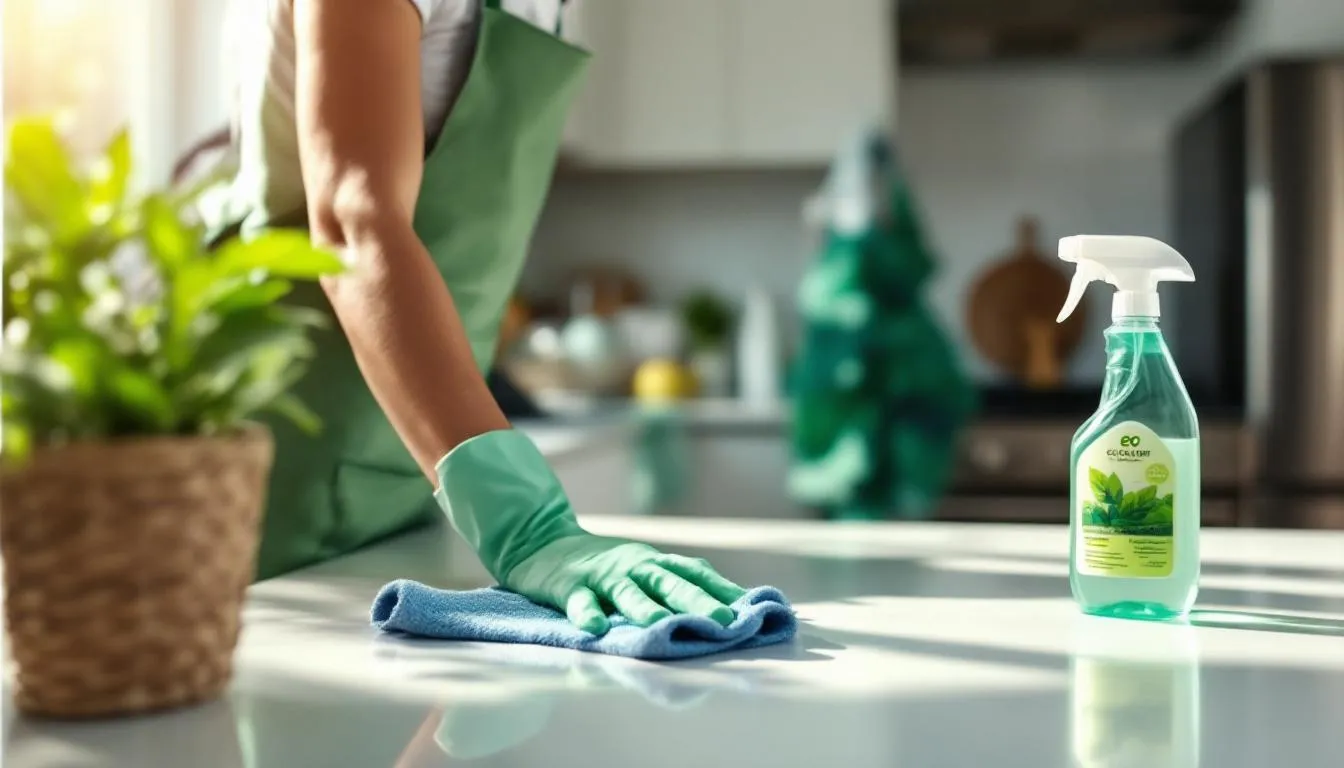
Green cleaning can actually reduce long-term supply costs by emphasizing reusable microfiber systems and concentrated, environmentally-friendly cleaning solutions. Partner with local health food stores, pediatricians’ offices, or environmental organizations for referral opportunities.
Position your green cleaning services as part of a broader commitment to health and sustainability. Many commercial properties seek green cleaning to support LEED certification or corporate environmental initiatives, creating opportunities for specialized commercial contracts.
Create a Detailed Business Plan and Budget
A comprehensive business plan serves as your roadmap for building a successful cleaning business. This document should clearly define your target market demographics, service area radius, and specific revenue goals for your first year of operation.
Calculate your startup costs carefully, including essential equipment ($200-500), initial cleaning supplies ($100-300), business insurance ($500-1,200 annually), and marketing materials ($200-500). Most successful cleaning companies start with $2,000-5,000 to cover these expenses plus 2-3 months of operating expenses.
Project your monthly operating expenses including fuel costs for transportation, phone service, insurance payments, equipment replacement reserves, and your desired salary. Understanding these fixed costs helps establish minimum revenue requirements and pricing strategies.
Set specific, measurable financial goals such as acquiring 20 regular clients within six months or achieving $5,000 monthly revenue by year-end. These targets provide motivation and benchmarks for measuring your cleaning business progress.
Include growth plans for hiring employees, expanding your service area, or adding specialized cleaning services. Consider scenarios for both organic growth through customer referrals and strategic expansion through marketing investments or business acquisitions.
Your business plan should address the competitive landscape, identifying your unique value proposition and strategies for differentiating your cleaning services from established competitors. This analysis informs pricing decisions and marketing messages.
Register Your Business and Choose Legal Structure
Proper business registration protects your personal assets while establishing credibility with customers and suppliers. Select a memorable business name that reflects your cleaning services and check availability through your state’s Secretary of State website.
Choose a Limited Liability Company (LLC) structure for optimal liability protection while maintaining tax flexibility and simplified reporting requirements. LLCs protect your personal finances from business debts and lawsuits while allowing profits to pass through to your personal tax return.
Register your cleaning company with your state and obtain an Employer Identification Number (EIN) from the IRS for tax purposes and business banking. The EIN enables you to open a business bank account, essential for separating personal and business finances.
Open a dedicated business bank account immediately after receiving your EIN. This separation simplifies tax preparation, enables professional payment processing, and demonstrates legitimacy to potential commercial cleaning clients who require formal invoicing.
Required Licenses and Permits
Obtain a general business license from your city or county clerk’s office, typically costing $50-200 annually. This basic license legitimizes your operation and may be required for business insurance coverage and commercial contracts.
Check whether your state requires a contractor’s license for cleaning services. Requirements vary significantly by location, with some states treating cleaning as a professional service requiring specific licensing and bonding.
Apply for a sales tax permit if you plan to sell cleaning products directly to customers or if your state requires sales tax collection on cleaning services. Consult with a local accountant to understand your specific tax obligations.
Some commercial cleaning contracts, particularly for healthcare facilities or government buildings, may require bonding insurance or specific certifications. Research these requirements early if you plan to pursue specialized commercial accounts.
Secure Business Insurance Coverage
Comprehensive insurance coverage protects your cleaning business from liability claims, property damage, and other risks inherent to the cleaning industry. General liability insurance, costing $500-1,200 annually, covers property damage and injury claims that could arise during cleaning operations.
Add commercial auto insurance if you’ll use your personal vehicle for business transportation. This additional coverage typically costs $300-800 annually but provides essential protection when traveling between client locations with cleaning supplies and equipment.
Consider bonding insurance ($100-300 annually) for commercial cleaning clients who require theft protection. Bonding demonstrates trustworthiness and often becomes a prerequisite for office cleaning contracts and other commercial opportunities.
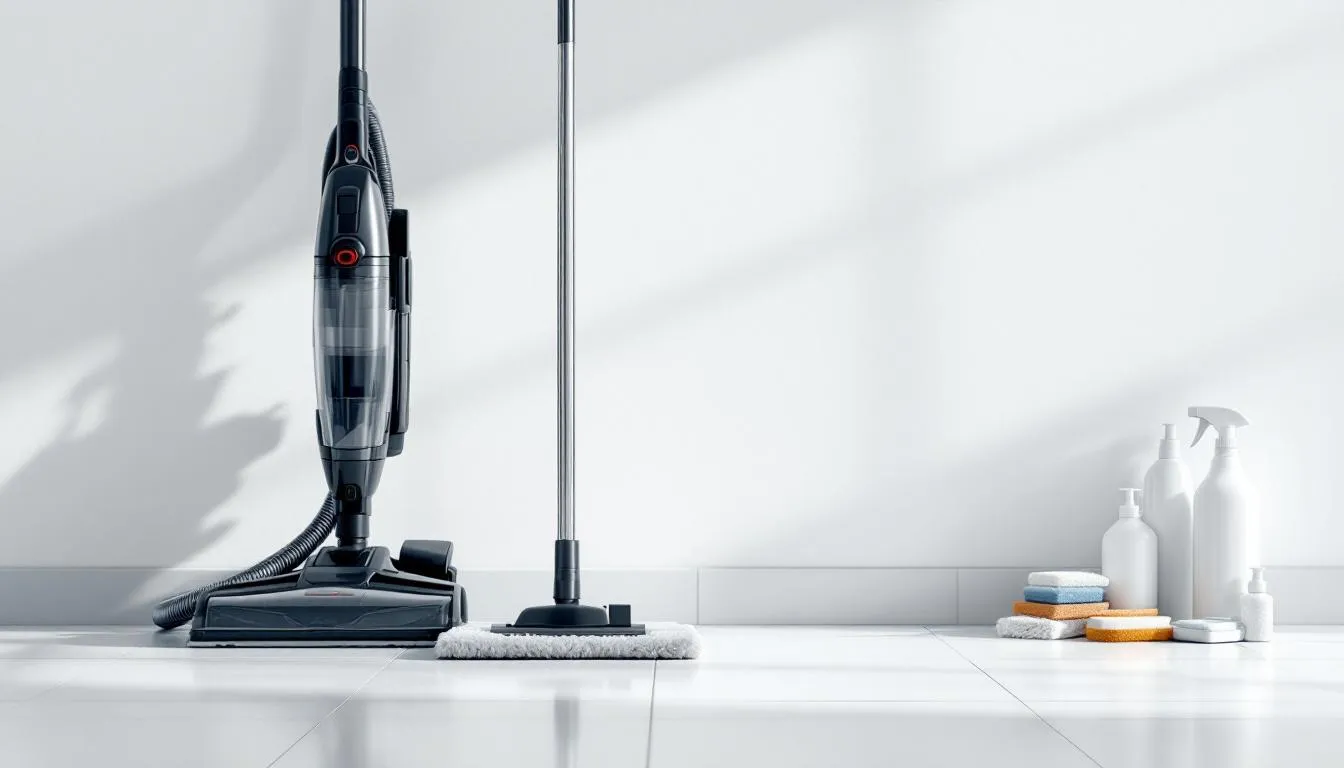
Get quotes from multiple insurance providers, including companies specializing in service businesses like Thimble, Next Insurance, or local agents familiar with cleaning industry requirements. Compare coverage limits, deductibles, and premium costs to find optimal protection for your budget.
Worker’s compensation insurance becomes necessary when you hire employees for your cleaning business. This coverage protects both your workers and your business from injury-related claims and legal requirements.
Purchase Essential Equipment and Supplies
Starting a cleaning business requires careful equipment selection that balances quality, functionality, and budget constraints. Begin with essential cleaning supplies including all-purpose cleaner, glass cleaner, disinfectant, microfiber cloths, rubber gloves, and trash bags.
Invest in a quality vacuum cleaner ($150-400) as this becomes your most important tool for both residential and commercial cleaning. Choose models with strong suction, reliable filtration, and appropriate size for your target market – lightweight units for house cleaning or commercial-grade machines for office buildings.
Purchase a professional mop and bucket system ($50-100), storage caddy for organizing supplies ($30-60), and safety equipment including non-slip shoes, back support belt, and first aid kit. These items enhance efficiency and demonstrate professionalism to potential clients.
Buy cleaning solutions and supplies from janitorial supply stores rather than retail outlets to achieve better pricing and access commercial-grade products. Start with a $300-500 initial investment and reinvest profits into additional equipment as your cleaning business grows.
Create a systematic approach to supply management, tracking usage rates and maintaining adequate inventory levels. Running out of basic cleaning supplies during a job damages your professional reputation and customer satisfaction.
Equipment for Different Service Types
Residential cleaning requires lightweight, maneuverable equipment including consumer-friendly vacuum cleaners, microfiber cleaning systems, glass cleaning tools, and bathroom-specific cleaning supplies. Focus on equipment that enables thorough cleaning without being intimidating to homeowners.
Commercial cleaning demands more robust equipment including commercial vacuum cleaners, floor scrubbers, pressure washers, and industrial-strength cleaning solutions. These tools handle larger spaces efficiently while meeting the durability requirements of daily commercial use.
Specialized cleaning services require specific equipment investments. Carpet cleaning demands extraction machines and specialized solutions, while window washing requires squeegees, extension poles, and safety equipment for multi-story buildings.
Consider leasing expensive equipment initially rather than purchasing outright. This approach conserves startup capital while providing access to commercial-grade tools that might otherwise exceed your initial budget for launching a cleaning business.
Develop Competitive Pricing Strategy
Successful pricing strategies balance competitiveness with profitability while reflecting the value you provide to customers. Research local competitors through their websites, Google My Business listings, and mystery shopping calls to understand market rates for similar cleaning services.
Price residential cleaning using either square footage ($0.05-0.20 per square foot) or flat rates based on bedrooms and bathrooms. Flat rate pricing provides predictable revenue while simplifying customer budgeting and comparison shopping.
Offer package deals for recurring clients such as 10% discounts for weekly service or 5% discounts for bi-weekly cleaning. These incentives encourage customer loyalty while providing predictable revenue streams for your cleaning business.
Include all relevant costs in your pricing calculations: travel time between locations, cleaning supplies, equipment depreciation, insurance, vehicle expenses, and your desired profit margin. Underpricing services leads to business failure despite high demand.
Start pricing slightly below established competitors to build your initial client base and gather positive reviews. Once you’ve demonstrated quality and reliability, gradually increase rates to market levels while maintaining competitive value propositions.
Pricing Models and Strategies
Hourly pricing ($25-80 per hour) works effectively for one-time deep cleaning services or irregular appointments where scope varies significantly. This model ensures fair compensation for time invested while providing flexibility for complex cleaning jobs.
Flat rate pricing provides predictable income for both you and your customers. Develop standardized rates for common service packages such as basic house cleaning, move-out cleaning, or standard office cleaning contracts.
Offer free estimates for larger jobs over $200 to assess actual time requirements and complexity. This approach builds customer confidence while ensuring accurate pricing for both standard and specialized cleaning services.
Create service packages that combine multiple offerings at discounted rates. For example, bundle regular house cleaning with periodic deep cleaning services or combine office cleaning with carpet cleaning for comprehensive commercial solutions.
Launch Marketing Campaign and Attract First Customers
Effective marketing drives customer acquisition and business growth in the competitive cleaning industry. Create a Google My Business profile featuring high-quality photos of your work, detailed service descriptions, accurate contact information, and business hours.
Design a simple business website using platforms like Wix or Squarespace, highlighting your cleaning services, service area, and easy contact methods. Include customer testimonials, before-and-after photos, and clear calls-to-action for scheduling services.
Print professional business cards and door hangers for direct neighborhood marketing. Target affluent residential areas where potential customers value time savings and professional cleaning services.
Join local Facebook groups and neighborhood apps like Nextdoor to introduce your cleaning services to community members. Engage authentically by providing helpful advice and building relationships rather than directly advertising.
Ask friends and family for initial referrals and offer first-time customer discounts to encourage trial of your cleaning services. Word-of-mouth referrals often provide the highest-quality customers with the lowest acquisition costs.
Digital Marketing Strategies
Optimize your website for local SEO using keywords like “house cleaning [your city]” and “cleaning services near me.” Local search optimization helps potential customers find your business when searching for cleaning services in your area.
Encourage satisfied customers to leave Google and Facebook reviews by providing exceptional service and following up professionally after each cleaning job. Positive reviews build credibility and influence customer decisions in the competitive cleaning industry.
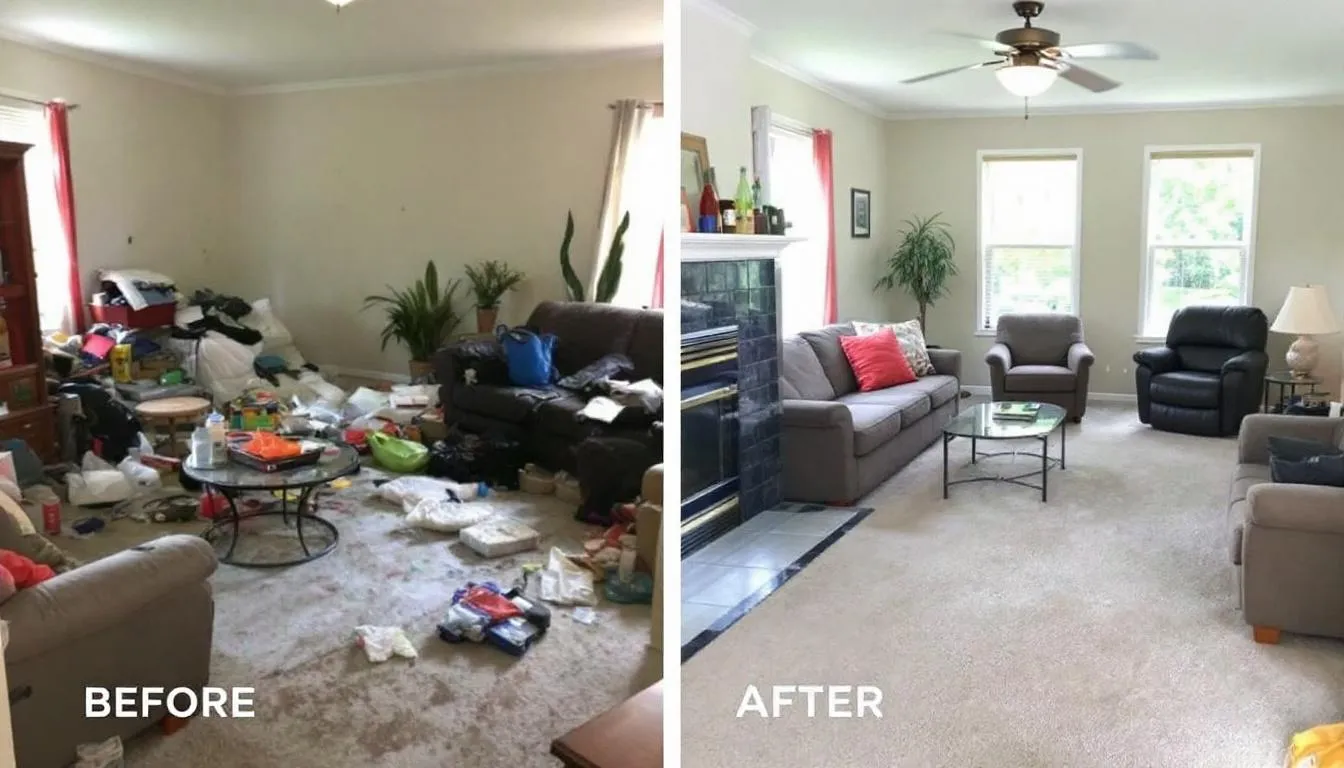
Post before-and-after photos on Instagram and Facebook showcasing your cleaning results and attention to detail. Visual content demonstrates your capabilities while building trust with potential customers who want to see proof of quality work.
Partner with complementary local businesses such as real estate agents, property managers, and moving companies for referral opportunities. These partnerships provide steady referral sources while expanding your network within the business community.
Invest in digital marketing including Google Ads and Facebook advertising once you’ve established basic operations and positive customer reviews. Targeted advertising accelerates customer acquisition while allowing precise budget control.
Deliver Excellent Customer Service
Exceptional customer service differentiates your cleaning business from competitors while building long-term customer relationships and referral opportunities. Develop standardized cleaning checklists ensuring consistent quality across all jobs and team members.
Communicate clearly with customers about scheduling, pricing, special requests, and any changes before each appointment. Professional communication builds trust while preventing misunderstandings that could damage customer relationships.
Follow up within 24 hours after service completion to ensure customer satisfaction and address any concerns promptly. This proactive approach demonstrates commitment to quality while providing opportunities to resolve issues before they escalate.
Implement a systematic customer feedback collection process through follow-up calls, emails, or surveys. Regular feedback helps identify improvement opportunities while showing customers that their opinions matter to your cleaning business.
Offer satisfaction guarantees such as re-cleaning unsatisfactory areas within 24 hours at no additional charge. These guarantees reduce customer risk while demonstrating confidence in your cleaning services and commitment to excellence.
Train all team members in professional customer interaction, including greeting customers appropriately, respecting home environments, and handling special requests courteously. Consistent professionalism across your team reinforces your brand reputation.
Scale and Grow Your Cleaning Business
Successful scaling requires systematic tracking of key business metrics including customer acquisition cost, average job value, customer lifetime value, and profit margins. These metrics inform growth decisions and identify optimization opportunities.
Hire your first employees when you consistently book 30+ hours weekly and have accumulated 3+ months of operating expenses in business savings. Employee hiring enables business expansion while providing backup coverage for customer commitments.
Implement professional scheduling software like Jobber or ServiceTitan to manage larger client bases efficiently. Business software automates scheduling, invoicing, and customer communication while providing valuable business analytics.
Expand into additional services such as window cleaning, carpet cleaning, or organizing services to increase revenue per customer and differentiate from basic cleaning competitors. Offering specialized services often commands premium pricing while improving customer retention.
Consider acquiring smaller cleaning businesses or partnering with complementary service providers to accelerate growth. Strategic acquisitions provide immediate customer bases, established systems, and experienced staff members.
Hiring and Managing Employees
Recruit quality employees through Indeed, local job boards, and referrals from current staff members. The cleaning industry experiences high turnover, making employee quality and retention critical for long-term success.
Conduct thorough background checks and verify references for all potential hires, especially important for cleaning business employees who work in customers’ homes and offices. Professional screening protects your business reputation and customer trust.
Provide comprehensive training covering cleaning procedures, safety protocols, customer service standards, and company policies. Consistent training ensures quality service delivery while reducing liability risks and customer complaints.
Offer competitive wages ($15-25 per hour) and benefits to retain quality employees in the competitive labor market. Employee retention reduces recruitment costs while maintaining service quality and customer relationships.
Develop clear performance standards and regular evaluation processes to maintain service quality as your team grows. Consistent standards ensure all customers receive the same level of professional cleaning service regardless of which team member serves them.
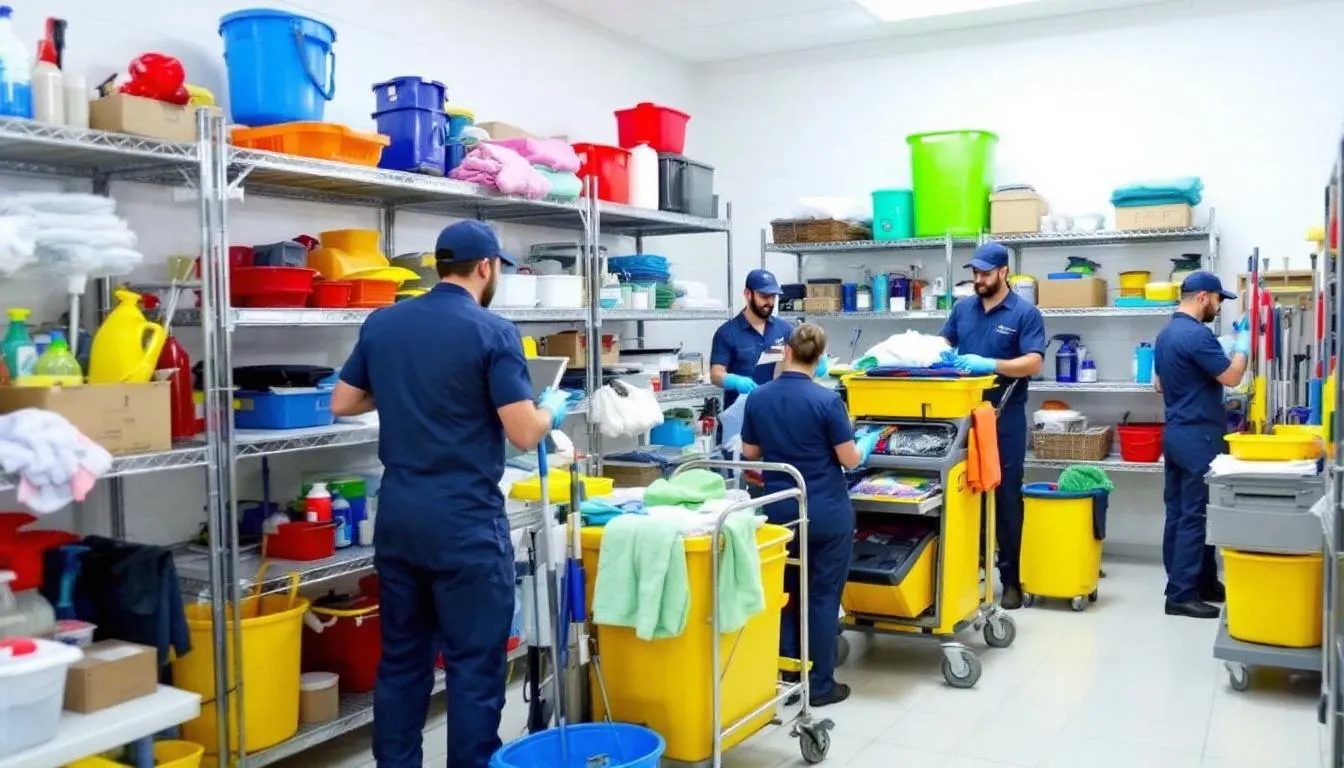
Create advancement opportunities within your cleaning business to motivate employees and reduce turnover. Promoting from within builds loyalty while providing career paths that retain experienced team members.
The cleaning industry offers tremendous opportunities for entrepreneurs willing to provide professional, reliable service to their communities. Success requires careful planning, consistent quality delivery, and strategic growth management, but the rewards include business ownership, flexible scheduling, and the satisfaction of building something valuable from the ground up.
FAQ
How much money do I need to start a cleaning company? You can start a basic cleaning business with as little as $650-1,000 covering essential cleaning supplies, basic equipment, business license, and initial insurance payment. However, most successful cleaning companies start with $2,000-5,000 to cover quality equipment, marketing materials, and 2-3 months of operating expenses. Commercial cleaning businesses typically require higher startup costs ($5,000-20,000) due to specialized equipment and bonding requirements.
Do I need special training or certification to start a cleaning business? No formal training or certification is legally required to start most cleaning businesses. However, professional certification from organizations like ISSA (International Sanitary Supply Association) or BSCAI (Building Service Contractors Association International) can enhance credibility, especially when pursuing commercial cleaning contracts. Some specialized services like medical facility cleaning or hazardous material cleanup may require specific training and certifications.
How long does it take to get profitable in the cleaning business? Most cleaning businesses become profitable within 3-6 months with consistent marketing efforts and quality service delivery. Achieving $3,000-5,000 in monthly revenue typically takes 6-12 months of building a steady client base through referrals and marketing. Profitability depends on your pricing strategy, operating efficiency, and ability to maintain customers through excellent service.
Should I start with residential or commercial cleaning? Residential cleaning is generally easier for beginners due to lower barriers to entry, immediate cash flow, and simpler scheduling. You can start with basic equipment and build relationships with individual customers. Commercial cleaning offers better long-term contracts and higher volume potential but requires more equipment investment, bonding insurance, and often involves night or weekend work schedules. Many successful cleaning business owners start residential and expand to commercial as they grow.
What’s the biggest challenge when starting a cleaning company? Finding and retaining reliable employees becomes the biggest long-term challenge as your cleaning business grows. Initially, the main challenges include pricing services competitively while maintaining profitable margins, building trust with new customers in a crowded market, and managing the physical demands of the work. Competition is intense in most markets, making customer service excellence and professional operations essential for success.